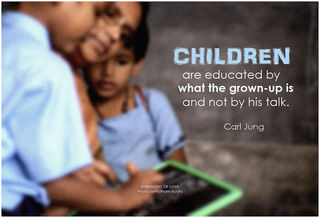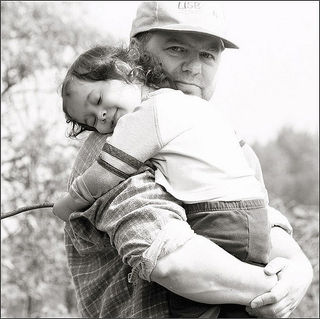Self-Esteem
How to Raise Your Kids With High—and Healthy—Self-Esteem
Here are the crucial do’s and don’ts for raising an optimistic, “can-do” child.
Posted August 10, 2016

My last post was on what you, as an adult, can do to optimize your self-esteem. This complementary post is about what you, as a parent, can do to ensure that your children grow up with a more positive self-image than you yourself may have when you were young.
Parental Self-Esteem
Sad to say, unless you’ve managed to rectify your own self-esteem deficiencies, it’s unrealistic to expect that you’ll be able to assist your kids in thinking all that favorably about themselves.
As in my previous post, many of the ideas here are adapted from one of the most authoritative volumes ever written on the subject: Self-Esteem: Paradoxes and Innovations in Clinical Theory and Practice, 2nd ed. —hereafter abbreviated as Self-Esteem (R. L. Bednar, M. Gawain Wells, & S. R. Peterson, Washington: American Psychological Association, 1995). The way these researchers describe this parental prerequisite is by emphasizing that “the degree to which parents have resolved their own questions of personal self-esteem will have more influence on their children than anything they might attempt to teach them verbally.”
Repeatedly, the authors stress that kids are influenced much less by the words they hear than the actions they see. For their natural (and mostly unconscious) tendency is basically to imitate what they observe. So it’s essential that parents demonstrate that directly coping with problems and conflicts rather than, anxiety-driven, look for ways to avoid them, is the optimal way of being in this world.
If, then, teaching “by example” is fundamental, parents must model problem-solving approaches that inspire the child to follow their lead and impart to them the courage to actively tackle life’s difficult challenges. Beyond that, parents must realize that their attitude toward themselves will have a powerful effect on their children’s self-regard as well. However immature or unsophisticated the child may be, they’re still primed to pick up on all sorts of cues and clues their parents “betray” to them.
Moreover, it’s not helpful—quite the reverse!—for parents to simply pretend their self-image is positive, if in fact it’s not. For then, however unawares, they’ll be teaching the child to pretend that they’re something they’re not. And that child will end up learning to focus, self-protectively, on managing others’ impressions of them, simulating a self that doesn’t actually exist—and that they themselves know to be fraudulent. This, of course, is the exact opposite of developing a positive, internally-anchored image of self.
On the contrary, the authors of Self-Esteem (arguing against what so many writers before them have advocated) propose that “parents permit the child to observe their struggles, their difficulties, and their conflicts because struggling is a primary coping response.”

In short, non-authentic parents are not going to breed authentic children. And for anyone to feel truly good about themselves requires the personal integrity to comfortably admit limitations and self-doubts.
What Parents Need to Take Heed of
To reiterate what was detailed in my last post, genuine, stable, and unassailable self-esteem is grounded in a life orientation that pro-actively copes with problematic people and situations—rather than seeks to avoid them. So how, then, can parents do everything possible to maximize the chances that their children will adopt this perspective, that they’ll become “programmed” to respond to difficulties in ways that promote not only high self-esteem but also self-acceptance, happiness and well-being?
For one thing, parents need to recognize that all children are different, so their messages to them must take into consideration both where the child is developmentally and their particular temperament and personality. Paradoxically, what might characterize adaptive coping for one child might depict avoidance for another.
For instance, the sensitive, dependent child might fear disagreeing with or challenging others, when overcoming this resistance by learning to be more assertive would represent adaptive coping behavior and so, over time, enable them to perceive themselves as competent, strong, and resourceful. But just the opposite might be true of a child who, by nature, tends to be oppositional, and so needs to overcome their strong-willed obstinacy by learning, pro-actively, to “cope” with frustrations in a more cooperative, or less aggressive, fashion.
As some further caveats, it must be admitted that children, especially as they get older, can be more influenced by their peers than their parents. For at this point their ongoing need to be accepted and “fit in” may relate less to their caretakers than to those their own age. Additionally, children may misinterpret the reasonable messages their parents attempt to impart to them, or simply choose to ignore them. So don’t be too hard on yourself if, despite your best efforts, your child takes an ill-advised path sharply deviating from what you’d advised.
The Imprudence of Unconditional Love, Adulation, and Support
Much has been made in the literature about the centrality of giving kids unconditional love. But, quite justifiably, in Self-Esteem the authors contend that such an “offering” can actually be extremely detrimental to the child’s development. Continually lavishing largely gratuitous praise on a child does nothing to prepare them for “the slings and arrows of outrageous fortune” (as Shakespeare might put it).
More than this, such an indiscriminately favorable parenting style can’t prepare the child to cope effectively with a complex reality that demands they develop the ability and skill to take in stride external threats and criticisms. And the kind of inauthentic self-esteem that derives from such categorically positive parental messages ("massages"?!) is actually linked to a defensively avoidant decision-making style. For the child—precisely because their parents’ have sought mightily to spare them the anxiety that typically precedes meeting a challenge—hasn’t learned how to get over their initial fears.
Ultimately, what unconditionally loving (vs. unconditionally accepting) parents may unwittingly foster is not high—but low—self-esteem. Healthily challenging, and at the same time encouraging, the child to work through their hesitations and anxieties is what lays the foundation for high self-esteem. On the contrary, endlessly reassuring and comforting the child or—in the effort to protect their fragile ego—not honestly sharing their awareness of the child’s shortcomings, does not. In fact, such effusiveness is more likely to lead to pathological narcissism than high self-esteem (!).
And, as the Self-Esteem authors proclaim, “no parent can successfully hover close enough to protect a child from those less caring and less admiring. . . . Self-esteem must be of a more robust construction than a child’s dependence upon parental praise.” Additionally, citing the work of Diana Baumrind (1963, 1966, 1971, 1975), these researchers proceed to note that this clinical and developmental psychologist “found preschool children of indulgent parents to be the most unhappy and insecure of the groups she studied,” leading to their conclusion that “parents must not teach the child to avoid the honest need for self-appraisal and change.”
Lastly, if parents regularly attempt to delegitimize, or contradict, the external criticism or negative feedback the child may be receiving, that child will eventually discount their credibility anyway. And it’s been my own clinical experience that such a child will actually view such unwavering parental support as a corroboration that what’s being expressed to them outside their family warrants a lot more authority than the words of their glib, ever-reassuring parents.
Another Erroneous Assumption: Self-Esteem Equates to Success
To tie self-approval totally to outward achievements is to regard the whole concept of self-esteem as provisional—as never fixed or stationary, or existing independent of the outcome of one’s endeavors. It’s fallacious to think that enduring self-esteem necessitates accomplishment after accomplishment. For positive self-regard isn’t simply a by-product of never-ending successes. Once you come to believe in yourself, once you’ve “internalized” your ability to accomplish much of what you care about in life, positive self-evaluation can hold up despite numerous setbacks and failures.
True, some accomplishment may be necessary to experience yourself as effectual. But , by themselves, achievements won’t bring about stable, lasting self-esteem.
The Theory of Social Invulnerability
This scientifically unsupported theory contends that if children are adequately socialized, they’ll never be afflicted with low self-esteem. Such a theory bases self-esteem not on an internally positive, confident sense of self but on the child’s behaving in such a way that they’ll never come under attack. Here self-approval hinges completely on others’ approval. And as has already been emphasized, any true, enduring appreciation of self has to be “an inside job,” relying only on one’s own realistically positive self-evaluation.
Moreover, to quote the authors of Self-Esteem: “Striving for [social] invulnerability generates the very anxiety that intensifies the likelihood of avoidance. . . . The essential choice to face difficulties requires a willingness to view criticism as an acceptable, even integral . . . part of the decision.”
Self-Esteem Not Equal to Belonging
The authors also rebut the complementary notion that teaching children how best to “fit in” will, by facilitating their acceptance, lead them to feel good about themselves. Such an approach to fostering self-esteem stresses both obedience and conformity: if the child adheres to directives designed to make them more sensitive to social nuances and customs, and if they avoid doing anything that might offend others, that “forced harmony” will presumably guarantee positive self-regard.
But here again, having children focus on what others might think of them is futile because it, too, requires outsiders’ approval for achieving self-approval. Additionally, it places the child in a “one down” position. And that’s hardly anything that could lead to genuine, internally-grounded self-esteem. Further, even if others do richly approve of them, the child can take little comfort from such approbation because, at some level, they’re aware that their acceptance is rooted not on who they are but on their (well-coached, self-conscious) performance.
Conclusions to be Drawn from the Above Concepts

Needless to say, the parents’ overarching acceptance and nurturance of the child is pivotal to their achieving healthy self-esteem. Nothing could be more important than a child’s feeling secure in the family constellation. Still, the balance between parental protection and the child’s developing a wholesome, self-determining individuality is vital if they’re to become assuredly self-approving. For as children advance through the different developmental stages, the need for favorable self-evaluation surpasses the need for others’ approval—whether that approval be from their parents or anyone else.
As the Self-Esteem authors duly emphasize:
It is the internal decision of what one must do to approve of oneself that is the touchstone for self-esteem in the adult. Thus the critical mistake in the common parenting styles is that parents oriented toward avoiding rejection train only for the development of the public self [which is defined exclusively from others’ feedback]. The question of fostering the child’s . . . private self [where the “true self” and one’s authentic identity is located] may remain unasked, let alone unanswered. [So]:
. . . Parents must planfully attend to the process of fostering the development of the internal component, the private self, which [prefers] self-approval to that of others when necessary. [Note: text in these quotes “bolded” by the authors themselves.]
Finally, as has been stressed earlier, it’s essential that parents do everything possible to encourage the child to focus on confronting obstacles and taking (thoughtful) risks—as well as taking pride in, and acknowledging, the process wherein the child struggles with their anxieties and moves forward—rather, that is, than withholding praise or recognition unless the child’s undertaking is successful. For how else can children learn to approve of themselves for their efforts, independent of the particular outcome of those efforts (which would signify only conditional self-regard)?
A Template for Promoting Self-Esteem in Children
Here, as a kind of summary of what’s most beneficial in helping children achieve high self-esteem, are three fundamental elements (which can be seen as overlapping):
1. An optimistic outlook—which models a “can do” attitude for the child
As the authors’ cogently put it:
During the[ir] early years, children look at the outside world through their parents’ eyes. When [they] see their parents approach difficulties with energy and a willingness to cope, they will be more likely to define the world as an exciting and challenging place to be, not a place to be approached apprehensively. Similarly, children will see themselves [emphasis added] in their parents’ eyes. [So] the parents’ expression of confidence in dealing with and helping children solve problems will significantly reassure them that difficulties can be temporary.
2. Acceptance, expectations, and autonomy: the three parameters of parenting that optimize the child’s development of self-esteem
a. Acceptance
All children need to feel that they’re important to their family. When children have reason to question their parents’ devotion to them, their emotional capability of handling stresses outside the family is impaired. Insecure about their acceptance at home, they can’t internalize the assurance that derives from intuitively knowing their parents have confidence in them. So they become all the more dependent on others’ acceptance and must focus their attention on managing others’ impression of them (rather than developing an internally anchored self-esteem).
b. Expectations
Reasonable parental demands for the child to work hard so as to optimize their eventual chances of success is integral to the child’s developing a confidence that will in time “mature” into a healthy sense of self, or self-esteem. Parents, therefore, should patiently model, teach, and, in various ways, assist their child until the child clearly grasps what’s expected of them.
Beyond all this mentoring, parents need to understand when to “let go” and have the child take increasing responsibility for themselves, so they can build their own sense of self-efficacy (what I’ve described earlier as a “can do” attitude). And ideally, early parental discipline will eventuate in the self-discipline upon which any healthy self-regard depends.
c. Autonomy
Several research studies cited by the Self-Esteem authors note that “competent, high-self-esteem children experience parental respect for their individuality.” Consequently, parents need not simply to allow, but actively encourage, their children to assert their differences. That way they’ll be fostering the child’s comfort, or “skill,” in listening to their own voice and identifying what they themselves feel, want, or need (vs. what others might prefer them to).
Parents, then, need to give children the message (especially as they grow older) that it’s okay to disagree with them, as long as they don’t “act out” their dissent in harmful ways.
3. Gradually shifting control from parent to child (or from external to internal) as a way of respecting the child’s developmental needs
What’s crucial here is that parents recognize the child’s need for increasing self- and environmental control, and that—contingent on the child’s showing the ability to handle this control responsibly—they honor this emergent need.
. . . It’s been said countless times how hard it is to be a really good parent. Undoubtedly, coming anywhere close to the ideals I’ve outlined is a formidable task. But finally, what could be more satisfying than seeing your child grow into an adult with a very high—and very healthy—self-esteem?
In case you missed it, here’s the link to my previous post on self-esteem: “What’s the Most Powerful Way to Raise Your Self-Esteem?”
If you could relate to this post and think others you know might also, kindly consider forwarding them its link.
To check out other posts I’ve done for Psychology Today online—on a broad variety of psychological topics—click here.
© 2016 Leon F. Seltzer, Ph.D. All Rights Reserved.
---To be notified whenever I post something new, I invite readers to join me on Facebook—as well as on Twitter, where you can also follow my frequently unorthodox psychological and philosophical musings.




